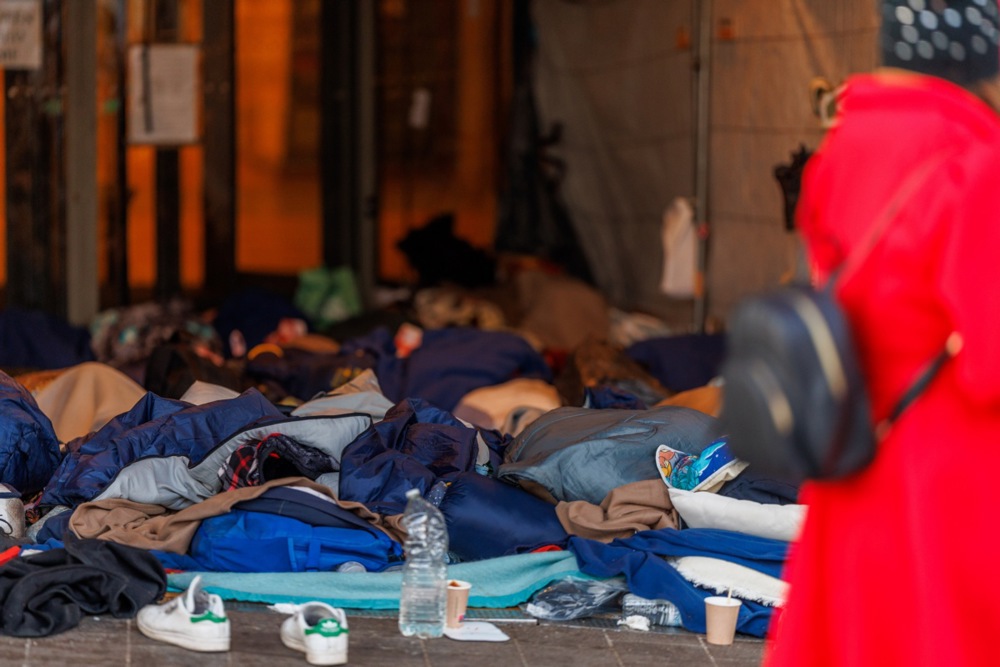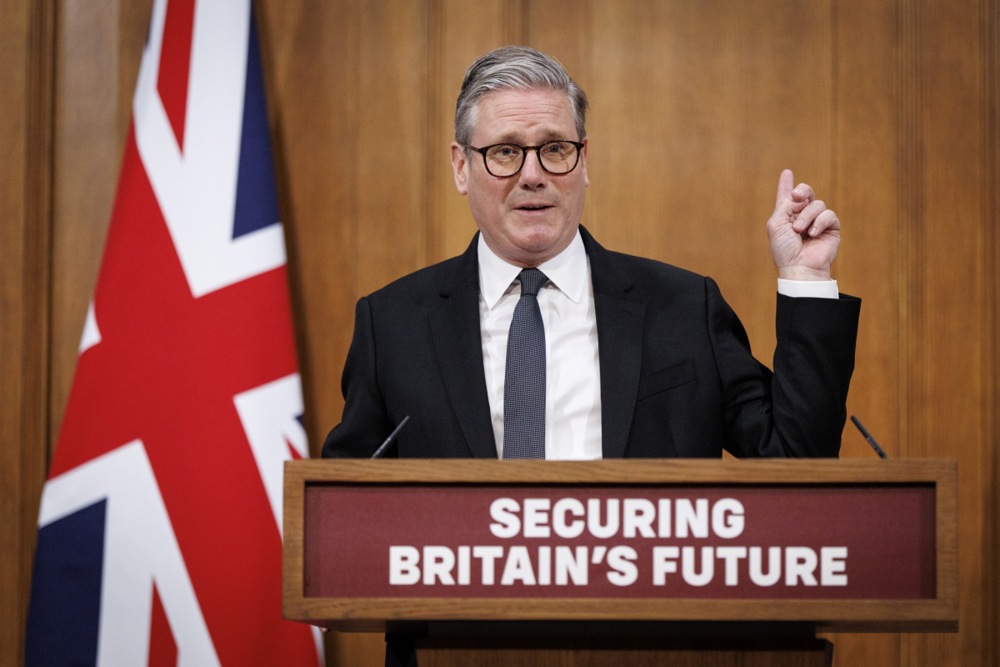Geert Wilders has threatened to blow up the Dutch government if asylum policies are not drastically tightened.
The leader of the Freedom Party (PVV), the biggest group in the majority coalition, said Dutch borders needed to close for asylum seekers in the near future. He also called for Syrians to return and for asylum shelters to close.
“Otherwise we are gone,” he said, threatening to pull his party from the coalition, leaving the government without a majority in parliament.
At a press conference on May 26, he warned that if his demands were not met, the Dutch Government would experience a “major crisis”.
Wilders stated that his party had exercised both reason and patience, but that patience had now come to an end.
The PVV issued a plan of new guidelines to course-correct the coalition agreement on immigration.
Titled The border has been reached, the 22-page-long document first painted a damning picture of existing migration policies.
“The Netherlands is no longer the Netherlands,” it stated, adding: “Our cities and neighbourhoods have been changed beyond recognition by mass immigration.”
It noted an increase in what the PVV saw as migrant-related violence and a lack of respect for Dutch culture and customs, claiming that left public spaces unsafe.
“Experts say that with an unchanged policy, around 2050, with a population of 20 million people, 3 to 4 million inhabitants in the Netherlands will be Muslim. Some of them have nothing to do with Dutch culture,” the report said.
The PVV insisted it did not sign up for a government that only created more asylum centres, adding that the administration must further restrict the influx of (non-Western) foreigners via additional measures.
That meant increasing the flow of foreigners to their countries of origin, which was possible when the country they fled from was declared once again safe — as well as removing criminal foreign nationals.
The PVV claimed 96 per cent of asylum seekers reaching the Netherlands came from Germany and Belgium, which were safe countries, indicating, according to the party, the motivation of those migrants was purely economic.
The party said it wanted to return asylum seekers at the border, as Germany did, based on European treaties. But it said it also wanted to temporarily suspend European regulations to quell what it deemed a Dutch asylum crisis.
Geert Wilders, whose Freedom Party (PVV) party sits in the Dutch Government, has said he wants Syrians to be sent back to their home country. https://t.co/DiIicetA2O
— Brussels Signal (@brusselssignal) August 27, 2024
The plan outlined 10 points Wilders said were “reasonable actions”. These included introducing more border guards, a temporary stop to family reunifications, making illegal stays punishable by the courts and supporting use of necessary force by the police.
Last year, the coalition found itself on the brink of crisis when other parties refused to approve an emergency law on migration pushed by Marjolein Faber, the PVV’s minister of migration.
Instead, a different law was approved. However, that has not proved enough, according to Wilders.
“We no longer bow to anyone, from today the gloves come off. We talk to everyone but we no longer bow,” Wilders said.
Caroline van der Plas, leader of the Farmer-Citizen Movement, also a coalition member, said she was open to discussion of the issues.
The Centrist NSC party said that the asylum measures under the coalition agreement were already quite robust but added that Faber could have done more as a minister.
Left-wing opposition parties were not impressed. The alliance of Greens and Socialists said Wilders’ proposals were “unfeasible” and queried whether he was, in fact, simply trying to torpedo the cabinet.
Left liberal D66 party leader Jesse Klaver referred to the PVV chief as a “cornered animal”.
“Wilders has been selling fairy tales about migration and now he pretends it is because of someone else. And so Wilders is putting on a political show. It’s for his own gain, but it doesn’t help the Netherlands.”
Joost Eerdmans of the right-wing JA21 party supported Wilders. On X on May 26, he suggested the coalition dump the centrist NSC and take up his own party instead.
The current coalition took a long time to form, with the Liberals and Centrists working hard to keep Wilders in check. As a result, the coalition has appeared to lack dynamism.
Recent polls have indicated that the governing parties might not secure a majority if elections were held.
In a move designed to appease his colleagues, Geert Wilders and his Freedom Party have formally withdrawn three controversial legislative proposals. https://t.co/uSVpT6fsfT
— Brussels Signal (@brusselssignal) January 8, 2024





